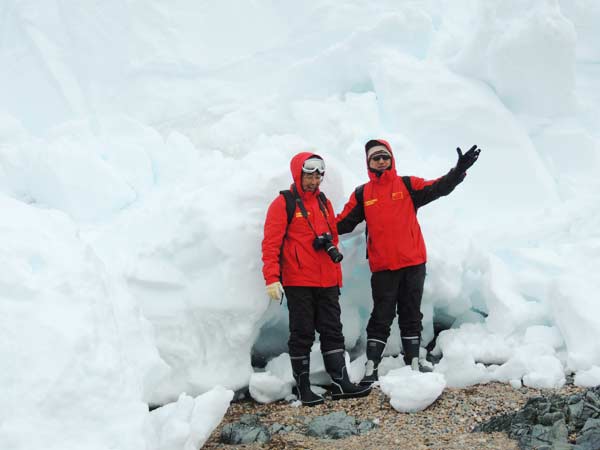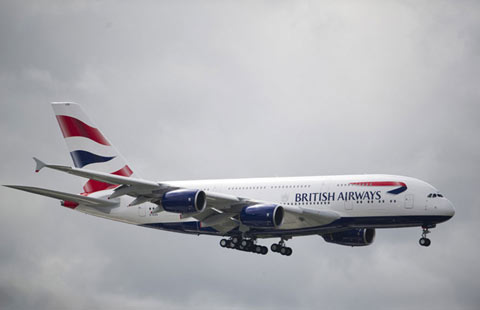Reduce carbon footprint in Antarctica
Updated: 2014-03-11 09:48
By Zhang Yue (China Daily)
|
||||||||
 |
|
Xie Xiaoyao (left) conducts field research in Antarctica [Photo provided to China Daily] |
Xie Xiaoyao did not take a good break between his 50-day journey to Antarctica and attending the Chinese People's Political Consultative Conference in Beijing.
The 62-year-old came to Beijing as the vice-chairman of the Guizhou province CPPCC committee, with his proposal to better protect the environment in Antarctica.
"What affected me most when we arrived in Antarctica is that the place has gotten more polluted because of increasing human activity," Xie says. "Yet it is unavoidable since our knowledge of the region can only be enhanced by human exploration."
"We once came across a dead bird as we were exploring along the coast," he says. "And its stomach was filled with plastic garbage."
Xie's proposal at the two sessions this year is to change the energy supply of China's scientific exploratory stations in Antarctica from diesel generating to wind energy.
"China currently has four scientific exploratory stations in Antarctica, and we have at least three diesel generators in one station," he says. "I hope we can consider replacing them with wind generating equipment one by one, and keep the diesel generators as a backup solution, which will effectively reduce pollutant. This also means that China is taking voluntary steps in Antarctica environmental protection."
Xie says Belgium and Australia have also used wind energy in their exploratory stations in Antarctica.
The 62-year-old professor is the province's first member to join Chinese National Antarctic Expedition, which took place from November 2013 to January 2014. It is the country's 30th expedition to Antarctica.
"I used to do research on information technology and work indoors, but in Antarctica, most of our research activities were conducted outdoors," he shares. "It was a big challenge yet very rewarding to work with my team members."

 Gorgeous Liu Tao poses for COSMO magazine
Gorgeous Liu Tao poses for COSMO magazine
 Post-baby Duchess
Post-baby Duchess
 Victoria Beckham S/S 2014 presented during NYFW
Victoria Beckham S/S 2014 presented during NYFW
 'Despicable' minions upset Depp's 'Lone Ranger' at box office
'Despicable' minions upset Depp's 'Lone Ranger' at box office
 'Taken 2' grabs movie box office crown
'Taken 2' grabs movie box office crown
 Rihanna's 'Diamonds' tops UK pop chart
Rihanna's 'Diamonds' tops UK pop chart
 Fans get look at vintage Rolling Stones
Fans get look at vintage Rolling Stones
 Celebrities attend Power of Women event
Celebrities attend Power of Women event
Most Viewed
Editor's Picks

|

|

|

|

|

|
Today's Top News
Search widens for lost air carrier Boeing 777
Carrying out goals of report vital
GDP target of 7.5% possible
ZTE, Houston Rockets join hands
Missing jet may have disintegrated - source
Affirmative action and US courts
Tougher penalty for underage prostitutes
ROM opens gates of China's Forbidden City
US Weekly

|

|









